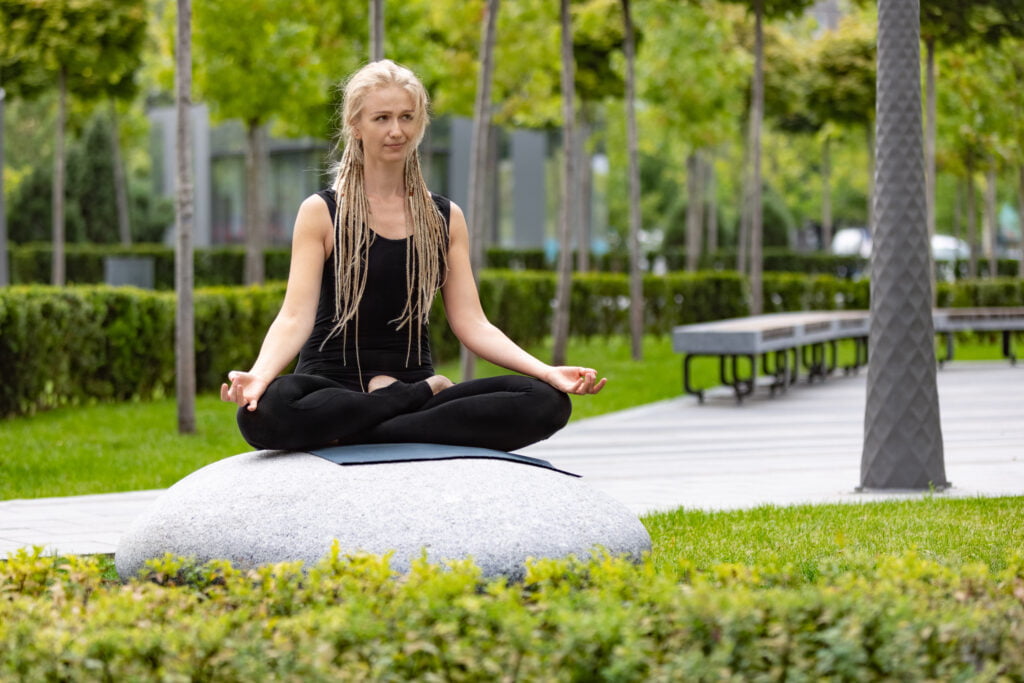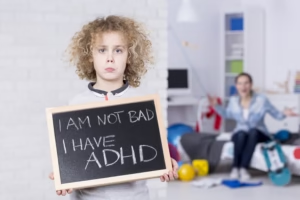As a counselor with years of experience, I’ve witnessed countless individuals integrate mindfulness into their daily lives. However, I’ve noticed a common misconception that often leads to unintended harm. Many believe mindfulness is solely about achieving calmness, centeredness, or contentment. But let me share a vital insight: these are merely byproducts of true mindfulness practice.
When I engage in mindful exercises, I’ve found that these positive states naturally emerge. But the real question is: how can mindfulness benefits truly transform your life? Let’s explore this together, delving into the profound impact mindfulness can have on your daily existence.
The Universal Struggle with Uncomfortable Emotions
We all face uncomfortable feelings like anxiety, sadness, fear, and disappointment. These emotions are an integral part of the human experience, yet many of us spend considerable energy trying to avoid or suppress them1. In my early years, I explored various approaches to deal with these emotions, and I’m sure you’ve tried some common methods yourself.
Common Coping Mechanisms and Their Pitfalls
Medication and Supplements – While medication can be beneficial for certain conditions, relying solely on pills to feel better often falls short. Supplements, too, can offer some benefits, but if your sole aim is to eliminate discomfort, you might find yourself disappointed.
Alcohol and Substance Use – Drinking is another culturally ingrained coping mechanism. We’ve all seen TV characters drowning their sorrows at a bar. However, this method of numbing emotions is a short-term fix at best and can lead to more significant problems down the line.
Avoidance and Distraction – Many people turn to distraction through activities like excessive gym sessions, binge-watching TV shows, or endless social media scrolling. While these might offer temporary relief, they don’t address the root cause of our discomfort. In fact, I recently wrote about how social media can increase anxiety levels2.
Seeking Pleasure – Pursuing pleasure through activities like shopping, gambling, or gaming might seem like a solution, but these activities often bring significant consequences and lose their effectiveness over time. The initial high fades, leaving us back where we started–or worse.

The Mindfulness Alternative: Embracing Discomfort
So, what’s the alternative to these often ineffective coping mechanisms? This is where the transformative benefits of mindfulness come into play. Mindfulness offers a radically different approach to dealing with our internal experiences.
Instead of avoiding uncomfortable feelings, mindfulness encourages us to embrace them as an essential part of our experience. This shift in perspective can be truly life-changing, altering how we interact with our thoughts, emotions, and the world around us.
The Paradox of Eliminating Discomfort
Here’s an interesting paradox: when you try to eliminate discomfort, you inadvertently diminish your capacity for positive emotions too. Our emotional range doesn’t work like a light switch we can simply turn on and off. When we numb ourselves to negative feelings, we also reduce our ability to fully experience joy, love, and excitement.
I recently wrote two articles that amplified this specific paradoxical point. Check out my post on social media and how it is linked with anxiety. Also, check out my article on self-care, and it is not what you think it is.
For example, imagine you have the opportunity to raise funds for an important project through public speaking. The anxiety might tempt you to withdraw, potentially sacrificing your chance at success. By avoiding the discomfort of public speaking, you’re also avoiding the potential for growth, achievement, and positive impact.

How Mindfulness Benefits Can Transform Your Life
So, how can mindfulness benefits transform your life? By pushing you to embrace the challenging aspects of life as essential components of a meaningful existence.
Here are some keyways mindfulness can create positive change:
Increased Self-Awareness
Mindfulness practices help you become more attuned to your thoughts, emotions, and bodily sensations. This heightened self-awareness allows you to respond to situations more consciously, rather than reacting on autopilot.
Improved Emotional Regulation
By observing your emotions without judgment, you can develop a healthier relationship with your feelings. This doesn’t mean you’ll never feel negative emotions, but you’ll be better equipped to handle them when they arise11.
Enhanced Focus and Concentration
Regular mindfulness practice can improve your ability to concentrate and stay present in the moment. This can lead to increased productivity and a greater sense of engagement in your daily activities12.
Stress Reduction
While mindfulness isn’t about eliminating stress, it can change how you relate to stressful situations. By accepting stress as a natural part of life, you may find it has less power over you13.
Better Relationships
Mindfulness can help you become a better listener and more attuned to others’ emotions. This can lead to deeper, more meaningful connections with those around you14.
Increased Resilience
By learning to sit with discomfort, you build emotional resilience. This can help you navigate life’s challenges with greater ease and adaptability15.

Practical Mindfulness Techniques
One simple yet powerful mindfulness technique is focused breathing. This serves two crucial functions:
- It helps us accept that our current feelings, even uncomfortable ones, are part of our present experience.
- It anchors us in reality, preventing us from being consumed by our thoughts or emotions.
When you choose to breathe mindfully, you’re choosing to embrace your current context and experience as it is. This acceptance can lead to a profound sense of calm – not because you’ve eliminated discomfort, but because you’ve allowed it to exist without resistance.
The Power of Acceptance
Consider this: when you fight against an uncomfortable feeling, you often prolong its presence. It’s like constantly trying to get rid of a coworker you dislike. All that energy spent on resentment doesn’t change the situation; it only drains you and distracts you from what truly matters.
The same principle applies to our internal experiences. Once you accept that uncomfortable feelings will come and go on their own, you can focus on what’s truly important in the moment. This shift in perspective is one of the most transformative mindfulness benefits.
Mindfulness in Daily Life

Incorporating mindfulness into your daily routine doesn’t require hours of meditation. Here are some simple ways to practice mindfulness throughout your day:
- Mindful Eating: Pay attention to the taste, texture, and smell of your food.
- Mindful Walking: Focus on the sensation of your feet touching the ground as you walk.
- Mindful Listening: Give your full attention to conversations without planning your response.
- Mindful Breathing: Take a few moments throughout the day to focus on your breath.
- Mindful Observation: Spend a few minutes observing your surroundings without judgment.
Overcoming Challenges in Mindfulness Practice
Like any new skill, mindfulness takes practice. You might encounter some challenges along the way:
- Mind Wandering: It’s normal for your mind to wander during mindfulness practice. When you notice this happening, gently bring your attention back to the present moment.
- Impatience: You might not see immediate results, but consistency is key. Trust in the process and be patient with yourself.
- Discomfort: Sitting with uncomfortable emotions can be challenging at first. Remember, the goal isn’t to eliminate these feelings, but to change your relationship with them.
- Time Constraints: If you’re struggling to find time for formal practice, start with short sessions and gradually increase the duration.
Conclusion: Embracing Life’s Full Spectrum
Remember, feelings are transient. By accepting their presence without actively fighting them, you free up mental energy for more productive pursuits. This acceptance doesn’t mean you have to like every emotion – you can still dislike anxiety or sadness – but you’re no longer consumed by the need to eliminate these feelings.
As you practice mindfulness, you may find that the peace and contentment you’ve been seeking arrive naturally, as byproducts of your newfound acceptance and presence. This is how mindfulness can truly transform your life – not by eliminating discomfort, but by changing your relationship with it.
In conclusion, the benefits of mindfulness extend far beyond simple relaxation. By embracing all aspects of your experience, including the uncomfortable ones, you open yourself up to a more authentic, engaged, and meaningful life. So, the next time you face a challenging emotion or situation, take a deep breath and remember: this too is part of your journey, and mindfulness can help you navigate it with greater ease and resilience.
Mindfulness isn’t about achieving a perfect, problem-free life. Instead, it’s about fully engaging with life as it is, with all its ups and downs. By cultivating mindfulness, you’re not just transforming your relationship with your internal experiences – you’re transforming your entire approach to life itself. And that, perhaps, is the most profound benefit of all.
Bibliography
- Kabat-Zinn, J. (2003). Mindfulness-Based Interventions in Context: Past, Present, and Future. Clinical Psychology: Science and Practice, 10(2), 144-156.
- Baer, R. A. (2003). Mindfulness Training as a Clinical Intervention: A Conceptual and Empirical Review. Clinical Psychology: Science and Practice, 10(2), 125-143.
- Shapiro, S. L., Carlson, L. E., Astin, J. A., & Freedman, B. (2006). Mechanisms of Mindfulness. Journal of Clinical Psychology, 62(3), 373-386.
- Brown, K. W., & Ryan, R. M. (2003). The Benefits of Being Present: Mindfulness and Its Role in Psychological Well-Being. Journal of Personality and Social Psychology, 84(4), 822-848.
- Grossman, P., Niemann, L., Schmidt, S., & Walach, H. (2004). Mindfulness-based stress reduction and health benefits: A meta-analysis. Journal of Psychosomatic Research, 57(1), 35-43.
- Davidson, R. J., Kabat-Zinn, J., Schumacher, J., Rosenkranz, M., Muller, D., Santorelli, S. F., … & Sheridan, J. F. (2003). Alterations in Brain and Immune Function Produced by Mindfulness Meditation. Psychosomatic Medicine, 65(4), 564-570.
- Hölzel, B. K., Lazar, S. W., Gard, T., Schuman-Olivier, Z., Vago, D. R., & Ott, U. (2011). How Does Mindfulness Meditation Work? Proposing Mechanisms of Action From a Conceptual and Neural Perspective. Perspectives on Psychological Science, 6(6), 537-559.
- Keng, S. L., Smoski, M. J., & Robins, C. J. (2011). Effects of Mindfulness on Psychological Health: A Review of Empirical Studies. Clinical Psychology Review, 31(6), 1041-1056.
- Creswell, J. D. (2017). Mindfulness Interventions. Annual Review of Psychology, 68, 491-516.
- Goleman, D., & Davidson, R. J. (2017). Altered Traits: Science Reveals How Meditation Changes Your Mind, Brain, and Body. Avery.
- Chambers, R., Gullone, E., & Allen, N. B. (2009). Mindful emotion regulation: An integrative review. Clinical Psychology Review, 29(6), 560-572.
- Jha, A. P., Krompinger, J., & Baime, M. J. (2007). Mindfulness training modifies subsystems of attention. Cognitive, Affective, & Behavioral Neuroscience, 7(2), 109-119.
- Kabat-Zinn, J. (2013). Full Catastrophe Living: Using the Wisdom of Your Body and Mind to Face Stress, Pain, and Illness. Bantam Books.
- Carson, J. W., Carson, K. M., Gil, K. M., & Baucom, D. H. (2004). Mindfulness-based relationship enhancement. Behavior Therapy, 35(3), 471-494.
- Bajaj, B., & Pande, N. (2016). Mediating role of resilience in the impact of mindfulness on life satisfaction and affect as indices of subjective well-being. Personality and Individual Differences, 93, 63-67.




